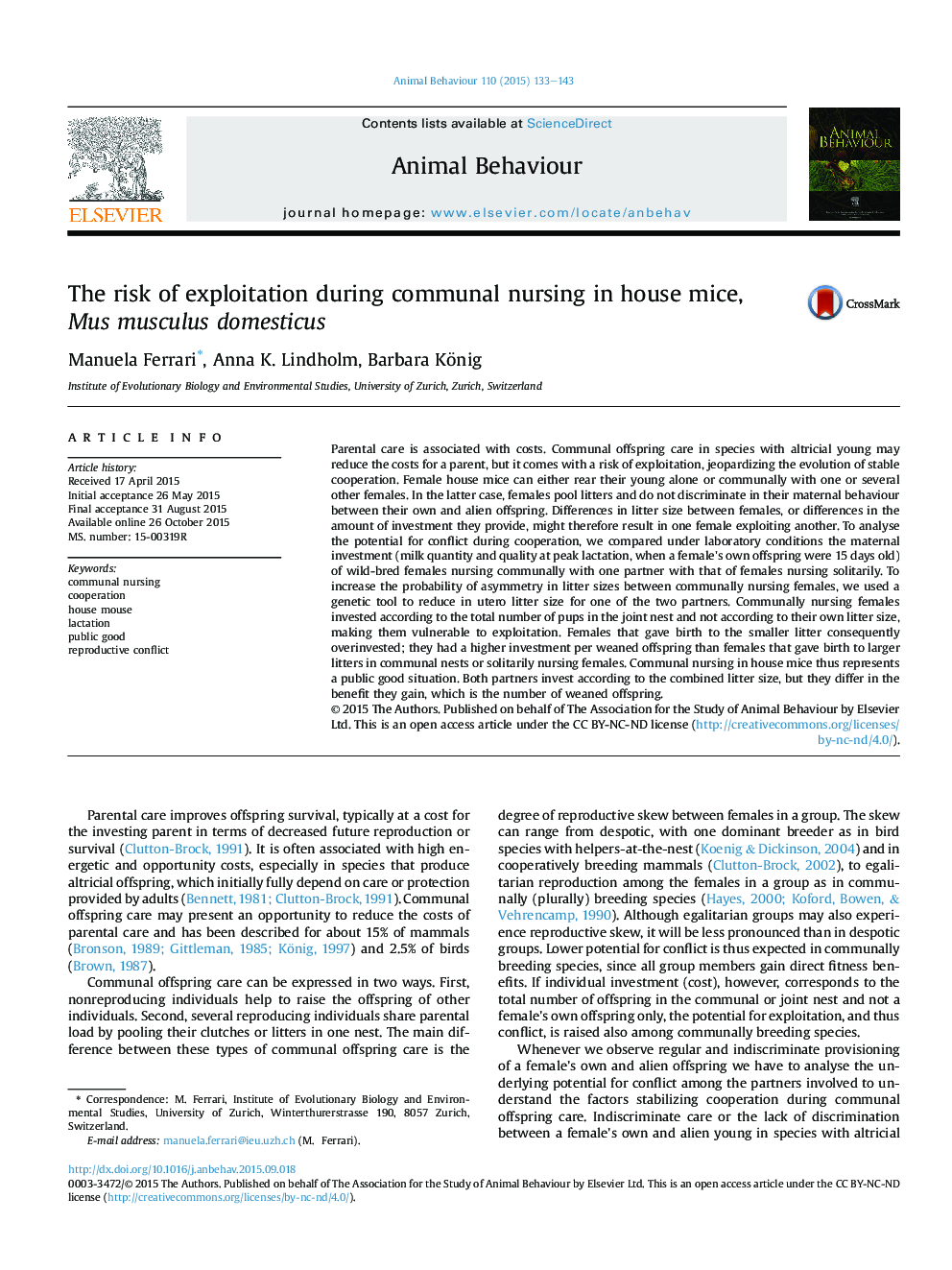| Article ID | Journal | Published Year | Pages | File Type |
|---|---|---|---|---|
| 8489530 | Animal Behaviour | 2015 | 11 Pages |
Abstract
Parental care is associated with costs. Communal offspring care in species with altricial young may reduce the costs for a parent, but it comes with a risk of exploitation, jeopardizing the evolution of stable cooperation. Female house mice can either rear their young alone or communally with one or several other females. In the latter case, females pool litters and do not discriminate in their maternal behaviour between their own and alien offspring. Differences in litter size between females, or differences in the amount of investment they provide, might therefore result in one female exploiting another. To analyse the potential for conflict during cooperation, we compared under laboratory conditions the maternal investment (milk quantity and quality at peak lactation, when a female's own offspring were 15 days old) of wild-bred females nursing communally with one partner with that of females nursing solitarily. To increase the probability of asymmetry in litter sizes between communally nursing females, we used a genetic tool to reduce in utero litter size for one of the two partners. Communally nursing females invested according to the total number of pups in the joint nest and not according to their own litter size, making them vulnerable to exploitation. Females that gave birth to the smaller litter consequently overinvested; they had a higher investment per weaned offspring than females that gave birth to larger litters in communal nests or solitarily nursing females. Communal nursing in house mice thus represents a public good situation. Both partners invest according to the combined litter size, but they differ in the benefit they gain, which is the number of weaned offspring.
Related Topics
Life Sciences
Agricultural and Biological Sciences
Animal Science and Zoology
Authors
Manuela Ferrari, Anna K. Lindholm, Barbara König,
